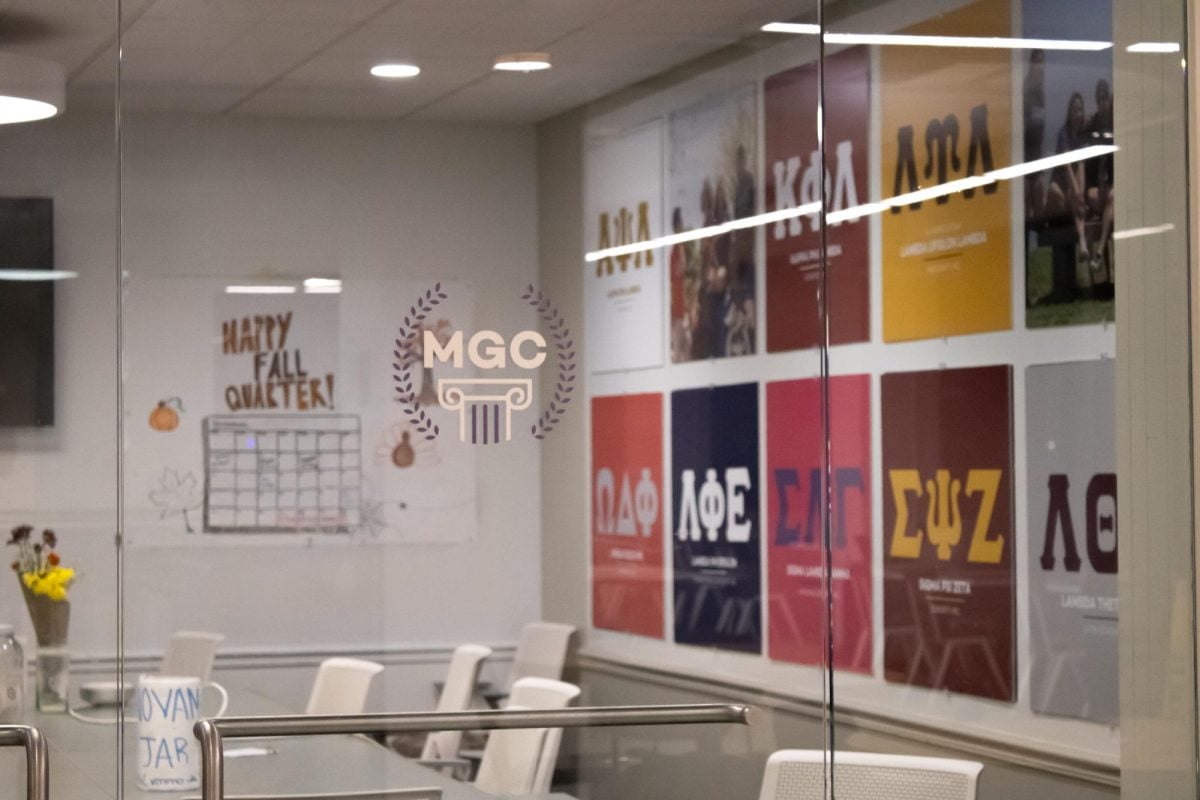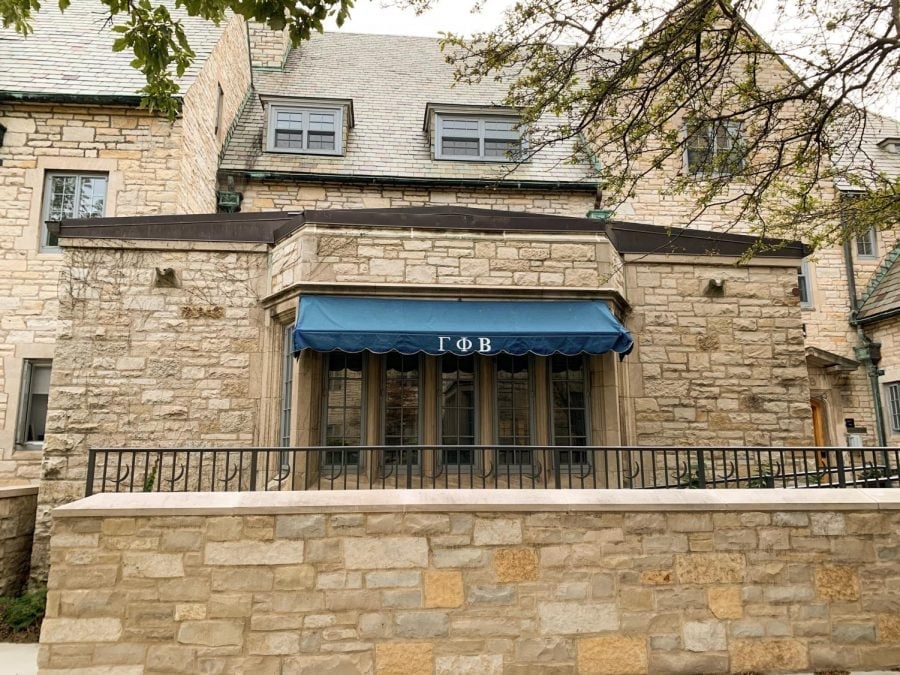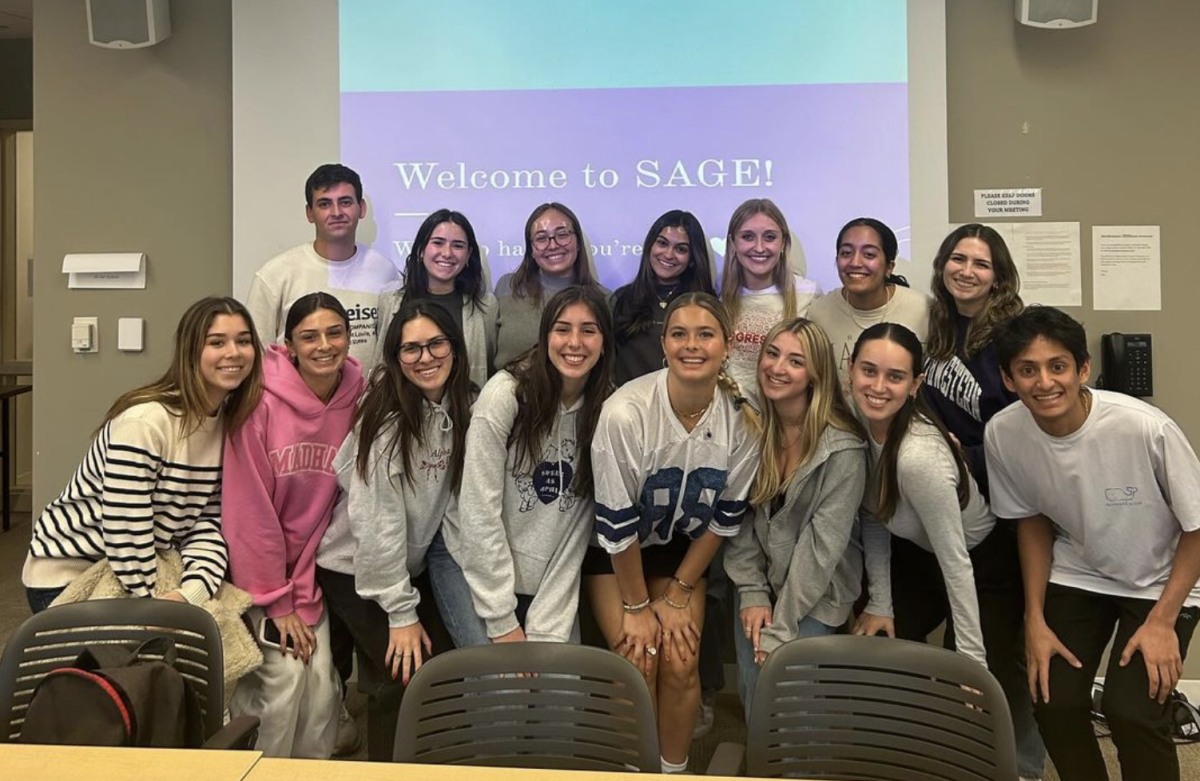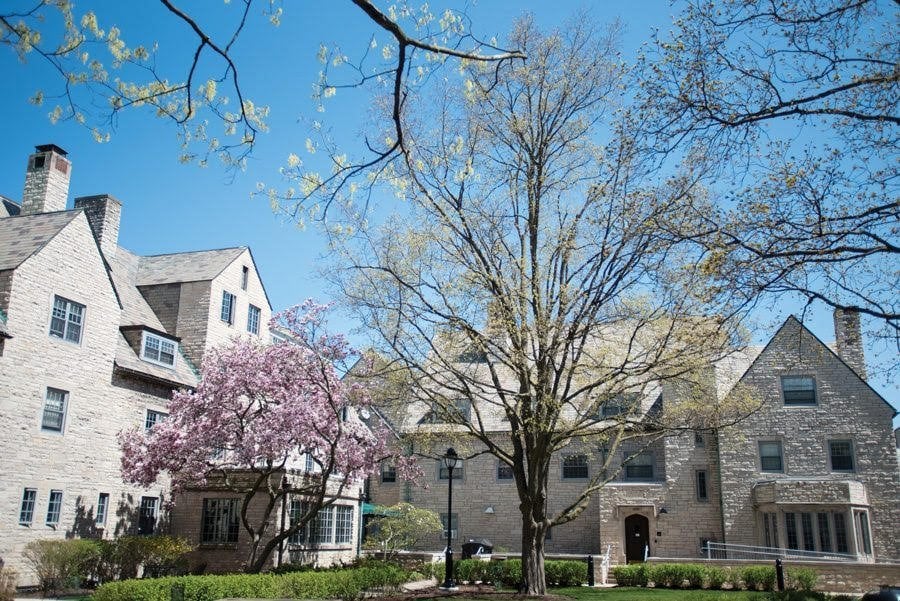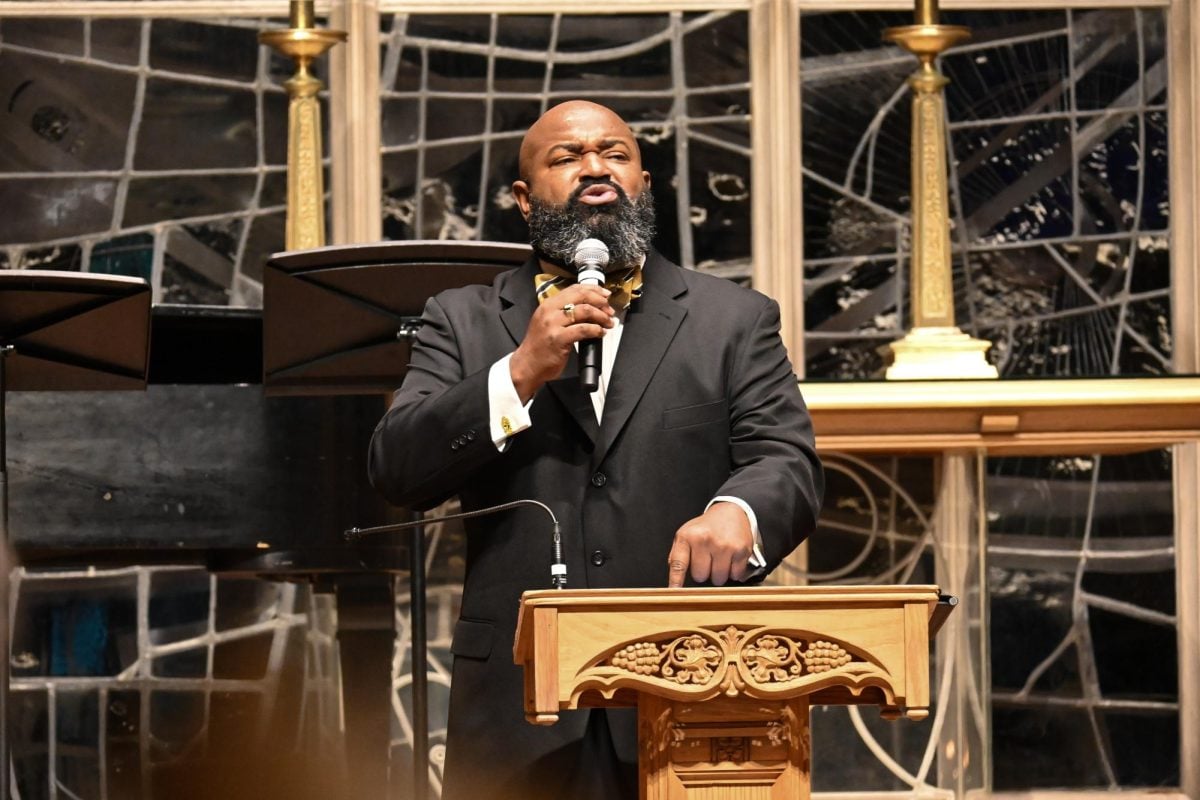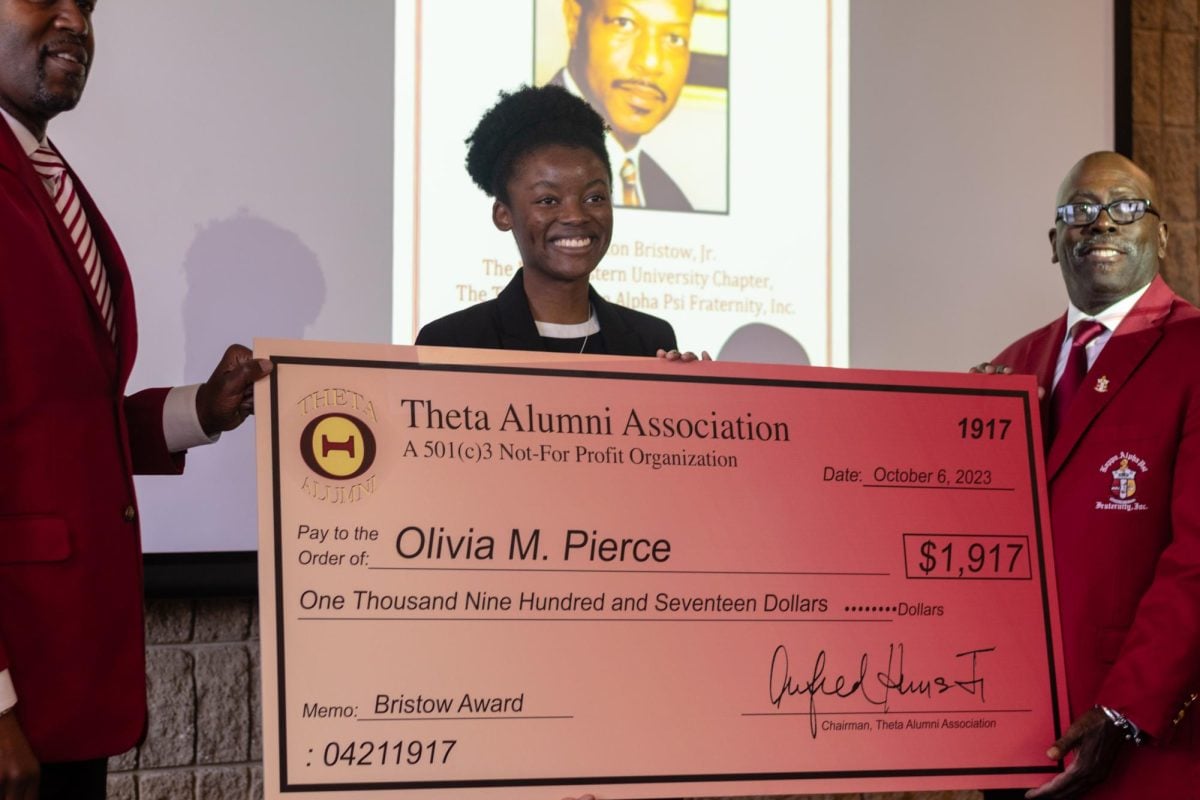A Feinberg School of Medicine professor has tapped into the causal factors behind suicidal thoughts in lesbian, gay, bisexual and transgender youth.
Dr. Brian Mustanski, professor of medical social sciences at Feinberg, led the two-and-a-half-year study, the first-ever longitudinal study (a correlational study involving repeated observation over an extended period of time) examining factors that contribute to suicide in LGBT youth.
The study, published in the American Journal of Preventive Medicine, followed 246 Chicago-area sexual minority youths, who are 16 to 20 years old at the start of the study, who were interviewed five times at six-month intervals. In a news release published Tuesday, Mustanski said the study, also led by Brown University’s Dr. Richard Liu, found that love and support were the most important factors deterring LGBT youth from suicide, and victimization was found to be the biggest factor putting youth at risk.
In the wake of publicized incidents of LGBT youth victimization, such as Rutgers University student Tyler Clementi, who committed suicide after his roommate allegedly watched Clementi’s sexual encounter with another man via webcam and posted about it online, Mustanski said the study demonstrated the importance of implementing anti-bullying programs in schools.
“Our research shows how critical it is for these young people to have social support and for schools to have programs to reduce bullying,” he said in the news release. “We believe this will help save young lives.”
According to the study, the interviews assessed each individual’s history of suicide attempts. Accompanying questionnaires measured tendencies for gender nonconformity, impulsivity and sensation-seeking behaviors. Follow-up assessments consisted of an interview tapping into self-harm practices, as well as questionnaires pertaining to suicide ideation, hopelessness, social support and LGBT victimization, the paper said.
Results showed that in addition to victimization and low social support, previous attempts at suicide and impulsive characteristics were also risk factors associated with suicide. The study also found factors such as “sensation seeking” and hopelessness for the future were indicators of greater self-harm.
Doris Dirks, coordinator of Northwestern’s LGBT resource center, said the frequent denial of support to LGBT youth is a factor that causes greater risk for suicide, in comparison to youth victimized for other reasons.
“Take a risk factor, like race,” she said. “Most often, if people are being victimized because of their racial identity, they’ll get support at home or church. What you’ll find with LGBT youth is that they’ll have an unsupportive home or church environment so the risk factor will be increased.”
Rainbow Alliance co-President Jeff Geiger said he was not surprised by the results of the study.
“I think that adolescents in general feel sort of isolated, so I think the emerging sexual gender identity serves to make people feel more isolated,” the Weinberg senior said. “I don’t find it surprising to hear that a support network is something that is really strongly correlated with suicide prevention.”
Geiger’s co-president Zach Wichter, however, said he does not think a remote support system, such as the encouraging videos by Dan Savage’s “It Gets Better” project, is enough.
“It’s one thing to send something online, but it’s an entirely different thing to have someone physically in their life who they can talk to and who can encourage them and support them regardless of their situation,” the Medill junior said.
Wichter, a resident of a New York City suburb, said he did not experience difficulty after coming out, something he credited to his liberal regional background. But he said he knows others who grew up in more conservative regions and had a tougher time.
“Almost every aspect of their coming out process was more difficult,” he said. “Their parents were not as accepting and their school was a lot more ignorant. I think the conservatism of the area you come from plays a huge role.”
The study’s specific focus on youth was something Dirks said she found important. The adolescent stage of development is important in developing identity, a process that can be especially sensitive to victimization, she said.
“Developmentally, (the adolescent stage) is critical,” she said. “It’s an issue that as you mature as a person: You go through all kinds of identity development stages, and as you go through this, whether it’s around sexual or (other forms of) identity, if you’re bullied around those identities it can cause a lot of harm, especially in the formative stages of development.”
But even though this crucial development stage occurs in youth, Geiger said studies should focus on LGBT adults, too.
“I wouldn’t ever want to focus 100 percent on kids because I imagine there’s substantial adult suicide related to queer identities,” he said.
Geiger also said the focus on youth may stem from their increased susceptibility to bullying, which he attributes to the fact that this age group is more exposed to it yet less equipped to cope.
To help youth with these issues, he said Rainbow Alliance has volunteered with a queer youth group at the Evanston McGaw YMCA, 1000 Grove St., while also reaching out to local high schools.
But a major problem, Geiger said, is that Rainbow Alliance cannot often reach those who are seriously contemplating suicide.
“I’m glad to see that we’re focusing on the younger component of our community because we don’t normally have very good access to them,” he said. “But it’s sort of problematic in terms of suicide because a lot of times the most at-risk are not the ones we’re able to access.”
Programs such as Project ShoutOUT also focus on going into high schools to educate youth about the affects of bullying.
Project ShoutOUT programming co-chair Gabe Bergado said the project focuses on bullying related to LGBT and other social issues, such as class and minority issues, which he said were not emphasized in the “It Gets Better” project.
“We want to bring attention to those social aspects that intersect with the idea of It Gets Better,” the Medill sophomore said.
Wichter said sup
port can also be provided through peer mentoring as part of Rainbow’s Guidance and Peer Solutions program, and Dirks added the LGBT resource center is working on ally development training.
“We want people to be educated and aware and stand up for LGBT people,” she said. “We spend time educating people and empowering them to become allies.”
But despite these efforts, Wichter said he does not know how great of an effect they will have.
“I hope that a study like this would make people more progressive and think about their actions,” he said. “But if you look at what’s going on in politics now … I don’t know how much impact it’ll have in a broader sense.”
